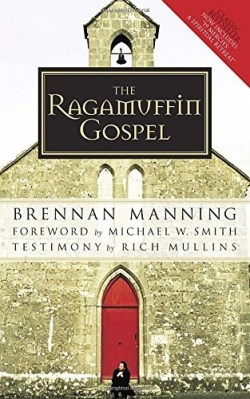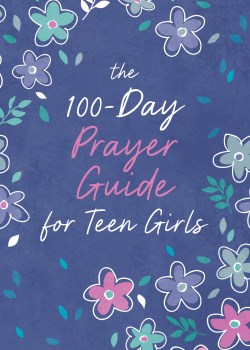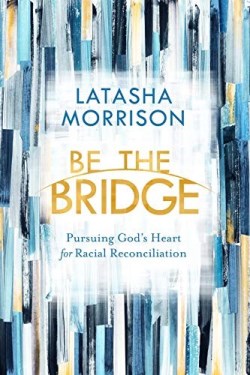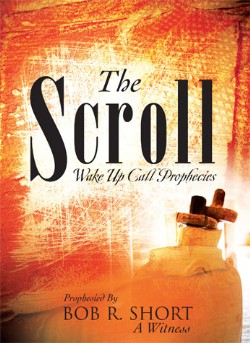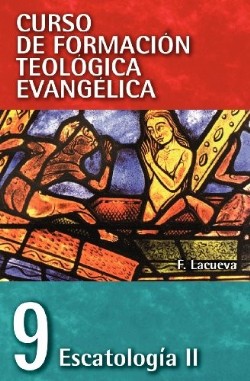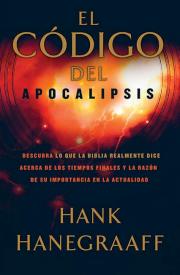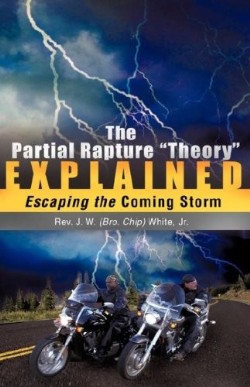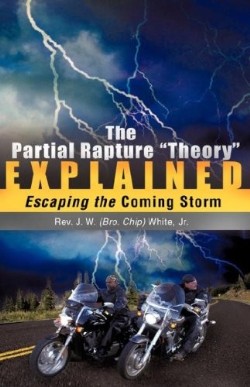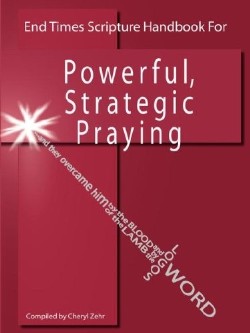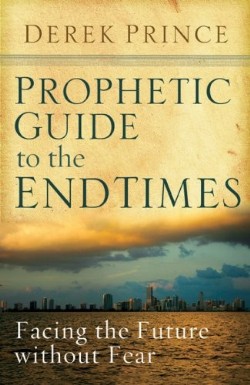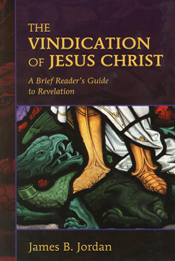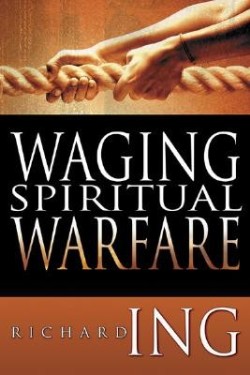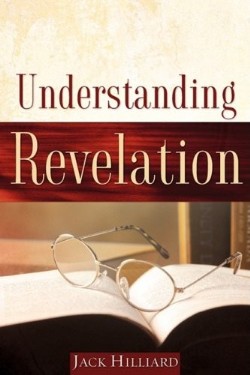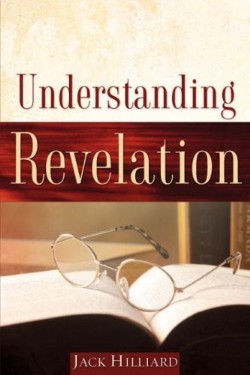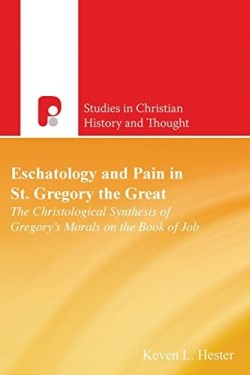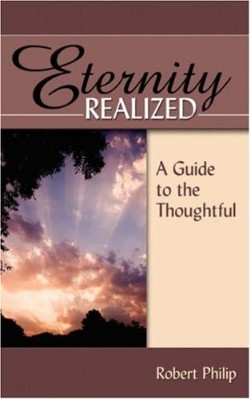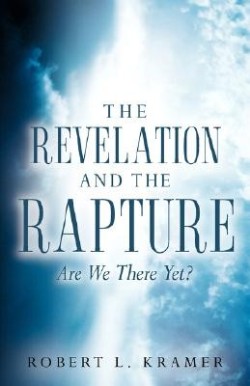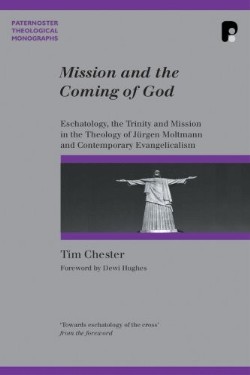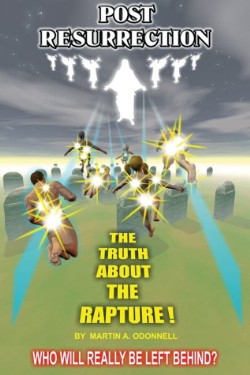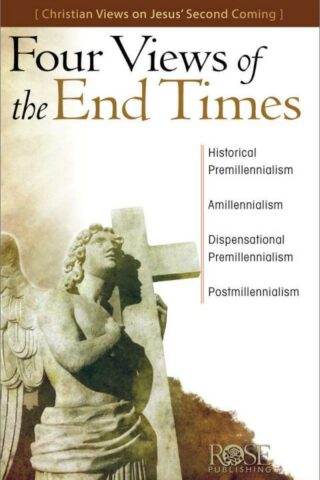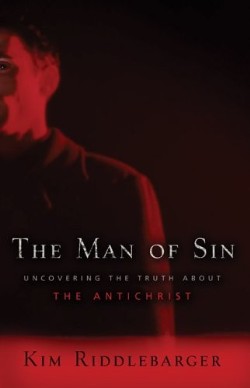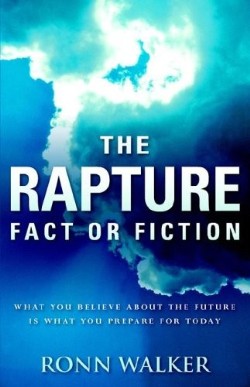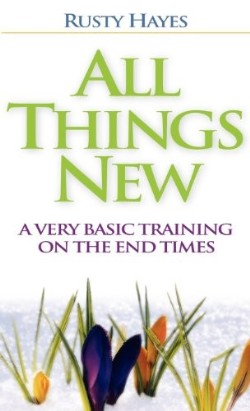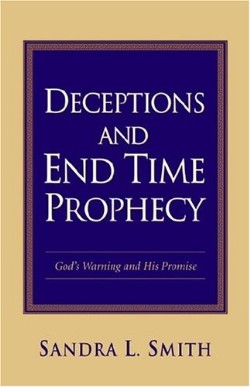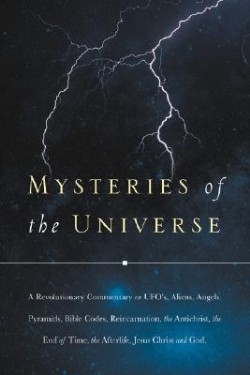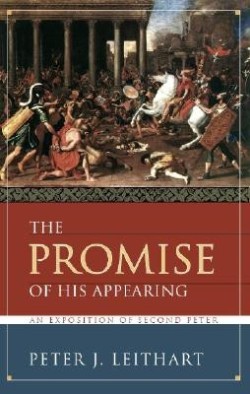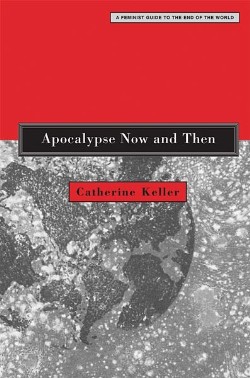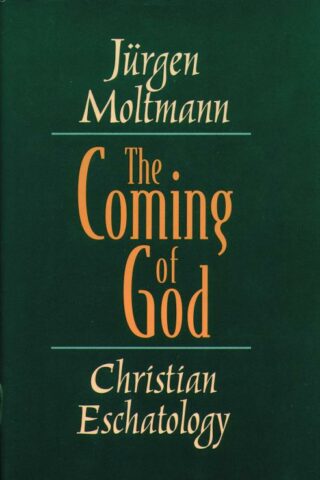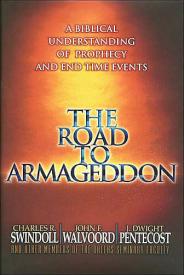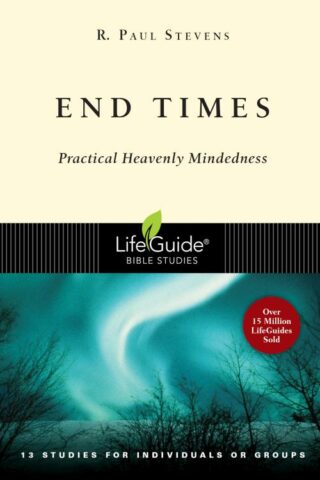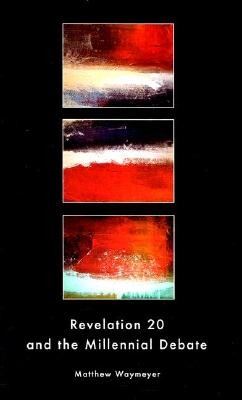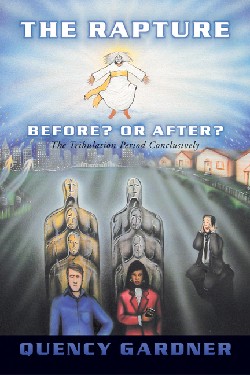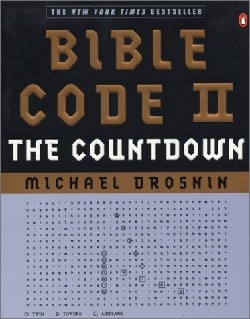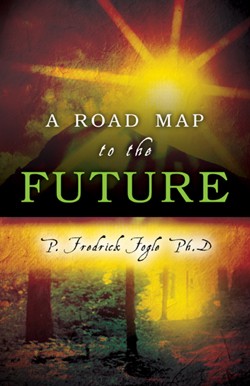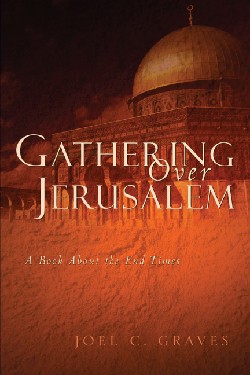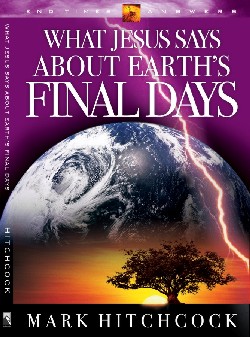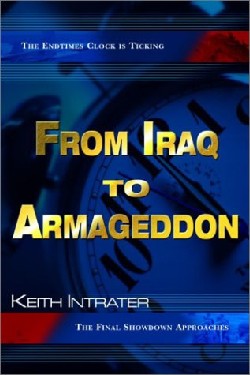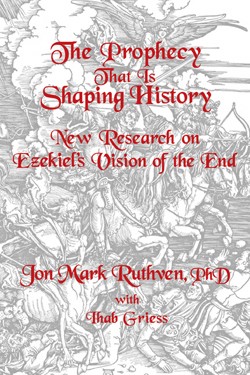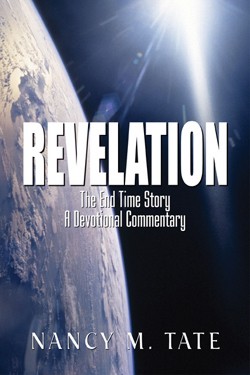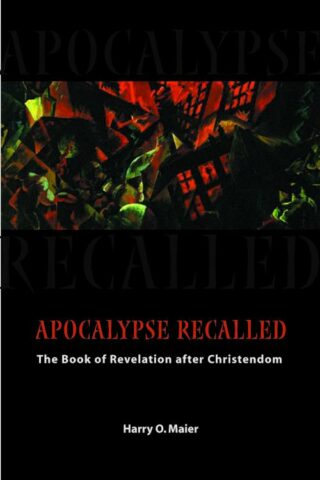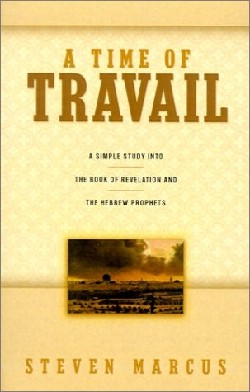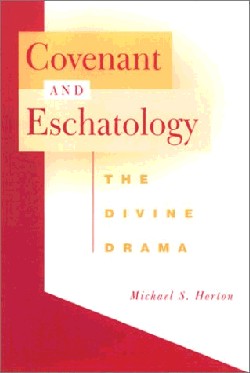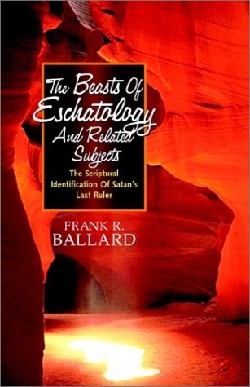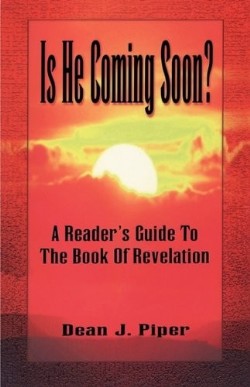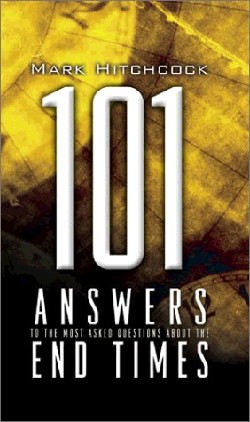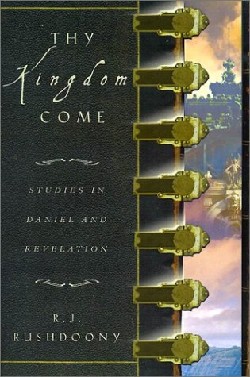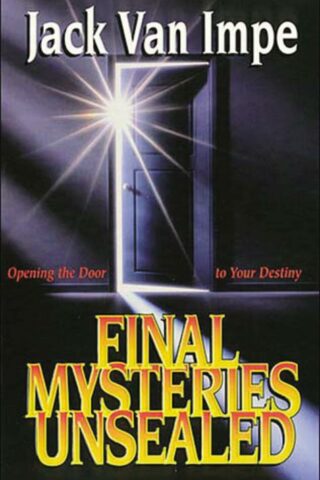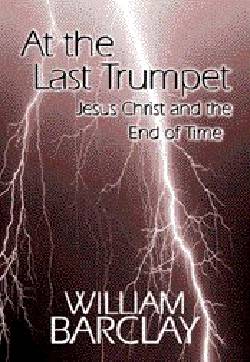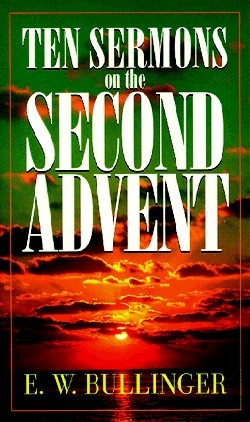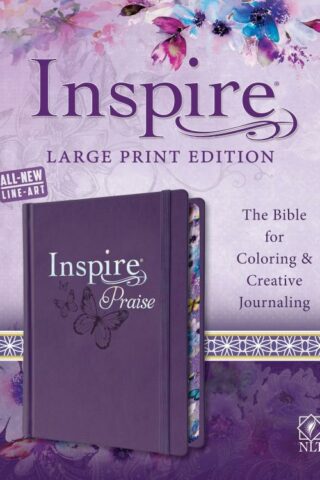Eschatology (End Times)
Showing 251–300 of 305 resultsSorted by latest
-
Get A Grip On A Heavenly Perspective
$15.61The Bible tells us that “in the last days, perilous times will come…” and truly we are in these days. In this book, the child of God will discover how to ride these perilous times as an overcomer by using tools God has given us in His Word.
Add to cartin stock within 3-5 days of online purchase
-
Scroll : Wake Up Call Prophecies
$24.98Bob Short has predicted his second book of astonishing end-time prophecies. Authoritative and cutting edge prophecies in The Scroll are incredible, even shocking, and could be life-saving. Understanding the future with skyrocketing catastrophic events makes this book a must-read for all nation’s Christians, citizens, clergy, and their military.
Add to cartin stock within 3-5 days of online purchase
-
Millennium
$28.73This book is a wealth of information, which is interestingly written and justified with documents. It is very thorough and informative, whilst also discussing a delicate issue courageously. No matter what you think about the Millennium, you won’t be bored with this book! In addition, you will learn many facts about the situation in the Middle-East and Israel, which the newspapers refuse for some reason to reveal. The Finnish Christian TV-7, January 2008 One has to admire the author’s knowledge of the Middle-East and the people living there; few have such expertise. When we add his knowledge of the Bible, there certainly aren’t many people who can boast to know equally much. The book covers the basic Gospel too, and thus is also suitable for anyone who is still seeking. In all, this book is very extensive and it can be warmly recommended to anyone. The Finnish Christian Weekly magazine, December 2007
Add to cartin stock within 3-5 days of online purchase
-
Codigo Del Apocalipsis – (Spanish)
$16.99?Estamos en los ultimos dias? ?Cuales senales debo estar buscando? “La mayoria de lo que has escuchado, leido o aprendido acerca de los ultimos dias es incorrecto”, dice el popular presentador radial y apologista, Hank Hanegraaff. “Hemos llegado a aceptar una gran variedad de creencias y ensenanzas acerca del futuro, sobre la batalla final entre el bien y el mal, los ultimos dias y de como va a ser el fin del mundo. Y la mayoria de estos conceptos y ensenanzas se basa en malas interpretaciones fundamentales de lo que las Escrituras dicen acerca de los ultimos dias”. El codigo del Apocalipsis ayuda a los lectores a comprender lo que la Biblia dice realmente acerca de los ultimos dias y explica la manera en que nuestros conceptos sobre los ultimos dias influyen directamente en nuestros pensamientos, opiniones y decisiones politicas con respecto al estado actual de Israel, la guerra contra el terrorismo y nuestra participacion en los asuntos vitales del Medio Oriente.
Are we living in the end times? What are the signs I should be looking for?
“Most of what you’ve heard, read, or been told about the end times is wrong,” says popular radio host and best-selling apologist, Hank Hanegraaff. “We have come to accept a wide range of beliefs and teachings about the future, about the ultimate battle between good and evil, about the last days, and about how our world will end. And most of these beliefs and teachings are based on fundamental misinterpretations of what the Scriptures really say about the end times.” El codigo del Apocalipsis helps readers understand what the Bible really says and shows how our beliefs about the end times directly influence our thoughts, opinions, and political decisions about the current state of Israel, the war on terror, and our involvement in critical issues in the Middle East.
Add to cartin stock within 3-5 days of online purchase
-
Partial Rapture Theory Explained
$36.23The Rapture of the Bride of Christ is the next event scheduled inside the plan of God which was spoken into existence complete from beginning to end in a “moment” before time. With its occurrence the Church Age will come to its conclusion and the final chapter of the history of the world will begin with The Great Tribulation. All who have failed to heed the warnings clearly stated by the Word of God that would have pointed each to an escape of this gruesome period of history, will be engulfed by the horrors it will bring. Deceit, betrayal and perversion will be the norm. No one will be safe or can be trusted. Once entered, the only available exit will be through the passageway of physical death which will be so common as to not be a second thought on the mind of a twisted and bloodthirsty world.
Add to cartin stock within 3-5 days of online purchase
-
Partial Rapture Theory Explained
$23.73The Rapture of the Bride of Christ is the next event scheduled inside the plan of God which was spoken into existence complete from beginning to end in a “moment” before time. With its occurrence the Church Age will come to its conclusion and the final chapter of the history of the world will begin with The Great Tribulation. All who have failed to heed the warnings clearly stated by the Word of God that would have pointed each to an escape of this gruesome period of history, will be engulfed by the horrors it will bring. Deceit, betrayal and perversion will be the norm. No one will be safe or can be trusted. Once entered, the only available exit will be through the passageway of physical death which will be so common as to not be a second thought on the mind of a twisted and bloodthirsty world.
Add to cartin stock within 3-5 days of online purchase
-
End Times Scripture Handbook For Powerful Strategic Praying
$23.43Olive Press Publisher
Many people today view prayer as a world-changing adventure with God. If you are one of them, here is a new tool from God’s Word to help intensify your prayer power and excitement. This handbook has lists of scriptures and scripture-filled prayers to use to do global, intercessory praying. There is a list of prophecies about Israel that haven’t yet been fulfilled, and another about things that must happen before the Second Coming. There are also lists to pray for the nations, for the coastlands, for secular world leaders, and for Kingdom workers. There are even lists for combating pride and evil. These are fighting, Biblical prophetic Words to use for earth-shaking prayers like you may have never prayed before.Add to cartin stock within 3-5 days of online purchase
-
Prophetic Guide To The End Times (Reprinted)
$17.77What does the Bible have to say about the end times? Bible prophecy reveals much concerning the end of the age, but for most readers, these prophecies can seem vague, confusing, or downright strange. Beloved author Derek Prince assures readers concerned about what the future holds that the Bible’s proven record of accuracy, extending over many centuries, validates its claim to predict future events with authority. The “secret things” may remain hidden from us, he says, but our responsibility is to study and act on the “revealed things.” And the God who foretells the future is the one who will see us safely through.
This biblical, thorough treatment of end-times prophecy from an internationally respected Bible teacher is positioned to become the definitive word on the last days, both for Derek Prince’s loyal readers and for many new ones who will catch the vision of the glorious victory to come.
Add to cartin stock within 3-5 days of online purchase
-
Vindication Of Jesus Christ
$8.95Although Revelation is said to give a blessing to those who read it and hear it (Revelation 1:3), it often results in confusion as well.
Revelation is applicable to all times and occasions in the Church, and because of that it has been interpreted as predicting many different events in history. Naturally, these interpretations all contradict one another, which leads many believers to decide that the book is a riddle wrapped in a mystery inside an enigma, and that efforts to understand it are a waste of time.
In fact, however, Revelation is not all that difficult to interpret. It completes the history begun in the book of Acts, and is closely tied to everything else that is going on in the apostolic age. It deals with the end of the Old Creation and the ful arrival of the New, and then looks forward to the final return of Jesus and the bodily resurrection at the end of history.
Add to cartin stock within 3-5 days of online purchase
-
Waging Spiritual Warfare
$17.00The end of the age is causing the clash between the kingdom of light and the kingdom of darkness to intensify. Today’s church is lamentably ignorant about spiritual warfare. In this follow-up to Spiritual Warfare, Richard Ing exposes Satan’s deceptions and prepares believers for the final global conflict. This book will help you to deliver those suffering physical and psychological oppression, overcome the obstacles of religious pride and unbelief, understand the role of angels, recognize the signs of the end times, resist being deceived, and know the believer’s role in the worldwide revival to come. Know your enemy so you can defeat him!
Add to cartin stock within 3-5 days of online purchase
-
Protection From Deception
$16.99According to Scripture, supernatural signs and wonders will multiply as we approach the end times. God isn’t the only one with a plan, however – Satan is plotting a scheme to deceive with supernatural signs and wonders of his own. In this book, Derek Prince warns Christians of deception, equipping them to recognize and resist the Antichrist, test the source of supernatural signs and wonders, and distinguish between the Holy Spirit and counterfeit spirits. By resisting Satan’s schemes and rejecting the false church, believers can beautify the true church and prepare for the end of this age, when Christ will gather those who have remained faithful.
Add to cartin stock within 3-5 days of online purchase
-
Understanding Revelation
$43.73Revelation is the most prominent book in the Bible when it comes to revealing the events of the end times, yet it has been misunderstood by ministers and laymen alike since its canonization. Many today make little or not attempt to understand its truths. Understanding Revelation uses a different method to interpret this fascinating book: the 39 books of the OT and the 27 books of the NT. Scripture interpreting Scripture. You see, God has hidden the symbols and mysteries of Revelation within the Bible itself.
Add to cartin stock within 3-5 days of online purchase
-
Understanding Revelation
$28.73Revelation is the most prominent book in the Bible when it comes to revealing the events of the end times, yet it has been misunderstood by ministers and laymen alike since its canonization. Many today make little or not attempt to understand its truths. Understanding Revelation uses a different method to interpret this fascinating book: the 39 books of the OT and the 27 books of the NT. Scripture interpreting Scripture. You see, God has hidden the symbols and mysteries of Revelation within the Bible itself.
Add to cartin stock within 3-5 days of online purchase
-
Eschatology And Pain In Saint Gregory The Great
$43.73Hester shows that the spirituality of Pope Gregory the Great (c. 540-604) is that of a contemplative looking for Christ and finding him in the pain of this world. The coming judge who punishes is also the God who saves and he does so often through the very pain of human existence. Gregory’s Christ is always the suffering servant and always the j…
Add to cartin stock within 3-5 days of online purchase
-
Eternity Realized : Guide To The Thoughtful
$20.001. Duty Of Realizing Eternity
2. The Possibility Of Realizing Eternity
3. The Excuses For Not Realizing Eternity
4. Nominal Faith, From Not Realizing Eternity
5. Spiritual Declension, From Not Realizing Eternity
6. Faith, Believing Unto Eternal Life
7. Eternity Realized In The Sanctuary
8. Eternity Realized At The Sacrament
9. Eternity Realized At Home
10. Christ, The Glory Of EternityAdditional Info
Print on demand
In “Eternity Realized: A Guide to the Thoughtful,” Philip guides the reader to the borders of Immanuel’s land. Too often, Christians neglect the practise of being heavenly minded. Philip reminds us of our duty to meditate on heaven and the danger we place our soul in when we disregard this task. Yet, more than just pointing out a mere duty, Philip places key aspects of the Christian life in the light of eternity and gives practical helps in cultivating a delight in heavenly things. Read, ponder, and experience how developing the habit of realizing the eternal world to come will help you keep this world in its proper place.Add to cartin stock within 3-5 days of online purchase
-
Revelation And The Rapture
$21.23ARE WE THE TERMINAL GENERATION? This book is a much needed valid and Scripturally correct alternative interpretation of Biblical eschatology. In the process of presenting a Scriptural depiction of the future it critiques the popular dispensational view of the End-Times. Contrary to what many have been taught, the Bible does not teach that the second coming is divided into two trips seven years apart or that the rapture is as sudden as the blink of an eye or unobserved by the world. Nor does the Bible anywhere affirm a seven year tribulation period. While the familiar themes of the second coming, the rapture and the great tribulation are presented, this is not a rehash of what others have popularly taught. I present valid new insights from the Scriptures that give an exciting new perspective to these familiar themes. I also expose some of the deceptions and errors that are popularly taught by the leading gurus of pretribulationalism.
Add to cartin stock within 3-5 days of online purchase
-
Mission And The Coming Of God
$49.98Chester explores the theology and missiology of the influential contemporary theologian, Jurgen Moltmann. It highlights the important contribution Moltmann has made while offering a critique of his thought from an evangelical perspective. The conclusion proposes “an eschatology of the cross” which offers a critique of the over-realized eschatologies in liberation theology and certain forms of evangelicalism.
Add to cartin stock within 3-5 days of online purchase
-
Post Resurrection : The Truth About The Rapture
$18.73Everyone is focusing their attention on the end times. We are all very concerned about the timing of the rapture. Maybe you have read the “Left Behind Series”, or perhaps you have heard your pastor mentioning that we will one day disappear before the great tribulation starts. There have been many teachings on the rapture of the church but very few on the resurrection. If we want to know for sure when the rapture of the church is going to take place, we have to first find out when the resurrection will take place. For we all know, the dead in Christ rise first. This book is designed to pinpoint when the resurrection will happen. By doing so, all doubt will be removed as to when the rapture will take place.
Add to cartin stock within 3-5 days of online purchase
-
4 Views Of The End Times Pamphlet
$4.99Unfolds To 33″ Long.
High Gloss Plastic Coated SheetAdditional Info
Four Views of the End Times pamphletSo what does the Bible actually say about the end times leading up to the return of Jesus Christ? Historically, four views have predominated Christianity’s understanding. Finally, those four views are explained and illustrated in simple terms.
Each view includes a definition of the position with its main points, supporting Scriptures, the time period for the view’s main popularity, and Christian leaders supporting that view.
Positions covered:
– Dispensational Premillennialism
– Amillennialism
– Postmillennialism
– Historic PremillennialismAdd to cart2 in stock
-
Rapture : Fact Of Fiction
$19.98As each year passes there arises one relentless question concerning the rapture: “Where is the rapture?” This question will always be answered by those who teach the rapture with a statement like “it could happen anytime, so be ready-it will come as a thief in the night.” But will it? Does God’s Word teach that Jesus will come on a secret trip to snatch His Bride from this planet? If so, why is there so much confusion concerning the rapture? Is our God a God of confusion? If Jesus is coming on a secret trip, why did He not say so clearly and unmistakably? The truth is simple. Jesus did make perfectly clear the events surrounding His return, and it has nothing to do with a secret trip. In this book you will discover the truth of God’s Word concerning the rapture
Add to cartin stock within 3-5 days of online purchase
-
Coming Islamic Invasion Of Israel
$11.99Writing 2,500 years ago, the prophet Ezekiel predicted a Russian-Islamic invasion of Israel in the last days. The third book in Mark Hitchcock’s fascinating prophecy series explains the relevance of this prediction to today’s world. First, he establishes how the current global scene sets the stage for this event and focuses on the identity of the invading nations (those mentioned in Ezekiel are like a Who’s Who of Israel’s current enemies). Hitchcock then considers the time and motives for their attack. Finally, he discusses God’s dramatic intervention that will pave the way for the Antichrist’s worldwide empire.
Add to cartin stock within 3-5 days of online purchase
-
All Things New (Student/Study Guide)
$27.48Presents a basic overview of the End Times for small groups, discipleship, communities, or personal Bible study. The hope is to provide a helpful “big picture” approach to those who have been intimidated, overwhelmed, or flat-out scared to death of God’s prophetic future.
Add to cartin stock within 3-5 days of online purchase
-
Deceptions And End Time Prophecy
$18.73What is written in God’s Word, the Bible-the book that is never out of date-about astrology, the theory of evolution, wizards and witches, false prophets, and the “end times”? What are the signs of Christ’s return as stated in His own words, and what will Heaven be like? Who will be involved in the Battle of Armageddon? In a straightforward, easy-to-understand style, Deceptions and End Time Prophecy: God’s Warning and His Promise answers these and other questions and warns of deceptions prevalent today. It tells the truth about Jesus, who He was and is, and how, as foretold, He is God’s greatest promise to humanity.
Add to cartin stock within 3-5 days of online purchase
-
Mysteries Of The Universe
$27.48Are you searching for answers to the mysteries of the universe? You’ve finally arrived at the right place at the right time. As this eon draws to a close and the new age dawns, God is revealing frank answers to the scientific and spiritual phenomena that fascinate mankind. And He is not afraid to tackle the tough questions and controversial issues of our day. The “truth is out there,” but it is almost the polar opposite of the mainstream illusion. In fact, the revolutionary insights that you now hold in your hand will catapult you into an entirely new reality. This radical paradigm shift is the Great Awakening. So don’t miss your wake-up call. You do not have to stay in the dark-come into the Light and experience an extreme renaissance of thought. Welcome to the REVOLUTION. “Come now, and let us reason together,” says the Lord. (Isaiah 1:18)
Add to cartin stock within 3-5 days of online purchase
-
Promise Of His Appearing
$18.75The book of Second Peter has long troubled biblical scholars and interpreters who have disputed its authorship and its claims about the imminent return of Christ. Leithart offers a preterist reading of the epistle, arguing that it describes first-century events rather than the end of history. He maintains orthodoxy, avoiding hyper-preterism, affirming both the real future return of Christ and the epistle’s authenticity.
Add to cartin stock within 3-5 days of online purchase
-
End Times : Practical Heavenly Mindedness (Student/Study Guide)
$12.99Do you wonder about the “end times”–when it will come? What it will be like? What will happen to you? As R. Paul Stevens leads you to examine for yourself what the Bible says about end times, you’ll learn what you can do now to be ready for the future–whatever it holds.
Add to cartin stock within 3-5 days of online purchase
-
Revelation 20 And The Millennial Debate
$15.28Often quoting the propronents of each view regarding premillennialism, amillennialism, and postmillennialism, this book summarizes and contrasts the arguments of the three positions as they relate to Revelation 20. Though premillennial in its conclusions, it provides a valuable and clear resource as to how each school of prophecy deals with this watershed passage.
Add to cartin stock within 3-5 days of online purchase
-
Rapture Before Or After
$22.48This book attempts to present the Lord’s return in a clear, simple, impartial manner. It is my heartfelt desire to present this teaching as simply and clearly as possible. Also, I wanted to present as clearly as possible the popular opposing doctrine. I believe I have presented these teachings along with most of the New Testament proof texts, which are used for the “Pre-Tribulation Doctrine.” It was placed in my spirit to determine what the Gospels and the Epistles recorded concerning the “order of events” leading up to Christ’s coming and thereafter. Parts of the book of the Revelation can be subjectively interpreted; therefore, only a few references are made from it. With this approach, I’ve therefore studied and have drawn certain conclusions concerning this matter. Be reminded that I am presenting only the “order of events” and that I am not interpreting events relative to where we are in God’s Plan.
Add to cartin stock within 3-5 days of online purchase
-
Bible Code 2
$24.00The Bible code-the ancient code encrypted in the Bible that may reveal our future-was made known to the world by investigative reporter Michael Drosnin. Now he reveals startling new predictions warning that we may have only three years to stop the countdown to Armageddon. This dramatic account opens on the morning of September 11, 2001, when Drosnin witnessed the attack on the World Trade Center-and then found the terrible event predicted in detail in the 3,000-year-old Bible code. But according to the code, September 11 was only the beginning. The Bible code says we are already in the “End of Days,” the Apocalypse foretold by all three major religions of the West. Drosnin has traveled the globe to meet with world leaders to prevent the impending danger-and to search for the “Code Key,” a long-buried ancient object that may completely unlock the Bible code, just in time to save our world.
Add to cartin stock within 3-5 days of online purchase
-
Road Map To The Future
$21.23An easy-to-read study of the events relating to the Second Coming of Jesus Christ Road maps are used every day. A Road Map to the Future will show you how to discover the future that God has in store for our world and its people. This handbook/sourcebook, designed for worldwide distribution, will permit you to peer into the future by means of hundreds of Bible texts. The thirty-one “bite-sized” chapters will rapidly make you aware of the great future events. Tied to the teaching about the Second Coming of Christ are many major Bible doctrines. You will read current events with greater perception. It will be a pastor’s helper and an excellent tool for small group study and discussion. It has a strong evangelistic emphasis, and it will encourage believers to live holy lives in the light of Christ’s Coming. “I have had the privilege and honor of knowing the author as a friend, mentor, missionary, minister, prayer warrior, and even as a patient. Now, after reading his book, I also know him as a teacher and scholar. A Road Map to the Future provides an excellent ‘nuts and bolts’ approach to the study of the ‘end time’ events. I wholeheartedly and enthusiastically endorse this book.” -C. Jake Lambert, Jr., M.D., F.A.C.S. “The author haas provided a basic and thorough outline of prophetic events, in language that all are able to comprehend. It will help every Christian to work through the maze. This book is interesting, true to the Bible, and highly recommended.” -John H. Stoll, Th.M., Ph.D, Founder and Director, ASK, Inc. “I have known Dr. Fogle (pastor, missionary and professor) for many years. I believe this book will be helpful to believers today around the world and that it can lead some to accept Christ.” -George Verwer, Founder and International Director, Operation Mobilization
Add to cartin stock within 3-5 days of online purchase
-
From Iraq To Armageddon
$22.48176 Pages
Additional Info
What is the mystery behind Babylon? How does Jerusalem fit into Middle East prophecy? Does the Bible help clarify the Iraqi War—and events that lie beyond? Get in-depth analysis on these and other questions. A pastor and messianic Jewish scholar, Intrater offers intriguing insights suggesting that time is winding down on the end-times clock.Add to cartin stock within 3-5 days of online purchase
-
Prophecy That Is Shaping History
$19.98Millions of Jews, Christians, and Muslims believe that a 2,500-year-old prophecy is about to be fulfilled: a global, apocalyptic jihad of many nations against the tiny state of Israel, whose recent re-emergence in its traditional land has sparked unrelenting rage and attack. Repeated resolutions passed in the United Nations reflect world-wide and nearly unanimous hostility against the so-called “Zionist entity”-even to the point of denying its right to exist. Most news media and political analysts seem unaware of the ancient prophecy that not only predicts this apocalyptic war, but also, amazingly, how this prophecy by Ezekiel (chapters 36-44) provides the scenario for numerous best-selling books in both the English-speaking and Muslim worlds! These best sellers not only describe this great conflagration, but actually also motivate their readers to prepare for it! The Prophecy That Is Shaping History represents a major advance in research and scholarship in examining the historical and contemporary impact of Ezekiel’s prophecy on world events. This academic monograph also offers a wealth of new evidence in tracing the identities, origins, and ultimate destinies of the key nations of Ezekiel’s prophecy who are seen to participate in what millions believe will be the most horrific battle the world will ever witness.
Add to cartin stock within 3-5 days of online purchase
-
Revelation The End Time Story
$23.73Revelation-The End Time Story is a verse-by-verse devotional commentary divided up into short segments designed to take the reader through the book of Revelation within two months in a user-friendly style. After all, Revelation is so relevant to current events that it needs to be studied on a regular basis. John wrote, “Blessed is he who reads and those who hear the words of this prophecy, and keep those things which are written in it; for the time is near.” The time is very near. The story is unfolding before our very eyes. This commentary, therefore, will shed insight into the happenings of the world and its future.
Add to cartin stock within 3-5 days of online purchase
-
Apocalypse Recalled : The Book Of Revelation After Christendom
$56.66The Book of Revelation has often been read as a set of endtime scenarios, glorifying a vengeful God and predicting and even fomenting apocalyptic violence. Yet it continues to exert a profound hold on the dreams and visions, fears and nightmares of our contemporary, first-world, secular culture. Harry Maier insists that, however much one is skeptical of its misuse or awed by its influence, Revelation still harbors a powerful and important message for Christians today. His fascinating book, erudite yet also intensely personal, asks us to recall Apocalypse through a careful exegesis of Revelation’s deeper literary currents against the backdrop of imperial Rome. He explores the narrrator’s literary identity, the plot or journey of the text, its many ocular and aural dimensions, and the ambiguous temporal dimensions of its “past vision of a future time.” Revelation, he believes, “offers an inversion of the violent and militaristic ideals of a first-century Roman Empire by offering a highly ironical political parody of imperial politics and insisting the true power belongs to the hero of the Apocalypse, the Slain Lamb.” In the end, Apocalypse Recalled seeks to free the imprisoned John of Patmos and employ his massively influential and controversial text to awaken a sleeping, sidelined, and culturally assimilated church to new imperatives of discipleship.
Add to cartin stock within 3-5 days of online purchase
-
Time Of Travail
$16.86A Time of Travail, a simple study into the book of Revelation and the Hebrew prophets, brings to light the sequence of events that must occur prior to, as well as those that will occur during the Tribulation. By taking both the Old and New Testament scriptural passages and bringing them together, it demonstrates to the reader that prophetic scripture cannot be separated into two books, but rather it is a single book that was given to the Jew first and then reiterated for the benefit of the rest of mankind as a warning of things to come. This book will not always give earthly rational answers to an event because we truly serve a God who is beyond earth’s confinement and it’s associated physical laws. A Time of Travail is intended for those: Who desire to understand the sequence of events that must precede the tribulation and why, as well as those events that will occur during the tribulation. Wishing to understand the correlation between Old and New Testament prophetic scriptures in a simple way. Who would like to meet the players during this period of time with all the symbolism peeled away. Offering some non-earthy answers and corresponding rationale to some of the events that will be administered by a God not bound by our physical laws.
Add to cartin stock within 3-5 days of online purchase
-
Covenant And Eschatology
$60.00In this innovative work in theological method and hermeneutics, Michael S. Horton uses the motif of the covenant as a way of binding together God’s “word” and God’s “act.” Seeking an integration of theological method with the content of Christian theology, Horton emphasizes God’s covenant as God’s way of working for redemption in the world. Horton maintains a substantial dialogue with important philosophical figures and Christian theologians, ultimately providing scholars and serious students a significant model for approaching and understanding Christian theology.
Add to cartin stock within 3-5 days of online purchase
-
Beasts Of Eschatology And Related Subjects
$18.73The most important one is represented by the scarlet-colored beast of Revelation 17. His activities are given in verse 8. This is Satan’s demon king who demonizes two of the seven that are represented by the seven heads on the beast. This conclusion is reached by giving equal value to every word that proceeds out of the mouth of God. (Matt. 4:4) We realize that wisdom only comes from God. He gives it according to His will. So we rejoice in the Spirit, as Jesus did, when the seventy returned with joy. He said, I thank thee, O Father, Lord of heaven and earth, that thou hast hid these things from the wise and prudent, and revealed them unto babes; even so, Father; for so it seemed good in thy sight. (Luke 10:21)
Add to cartin stock within 3-5 days of online purchase
-
Is He Coming Soon
$13.68With the millennium and prophetic pronouncements about the Second Coming fast approaching, Piper provides a well-crafted examination of one of the most misunderstood books of the Bible, guiding readers through Revelation and offering “Points to Ponder” for more in-depth consideration.
This book offers a solid but easy-to-follow explanation of the text, and a scholarly but easy-to-understand approach to this important subject of “the last things.”
As your stack of millennium reading grows, put it all into perspective with Piper’s important reader’s guide to the Book of Revelation. Read and understand Revelation with the help of this well-crafted examination.
Add to cartin stock within 3-5 days of online purchase
-
101 Answers To The Most Asked Questions About The End Times
$17.00For many believers, the subject of the End Times stirs confusion, apprehension, and dread. No longer! This user-friendly manual answers 101 of the most frequently asked questions about everything from the Pre-Tribulation Rapture, the Antichrist, and Tribulation to the Second Coming and the Millennium. Prophecy expert Mark Hitchcock offers a biblically authoritative resource for understanding God’s plan and a reason for peace instead of anxiety about each believer’s role in it.
Add to cartin stock within 3-5 days of online purchase
-
Thy Kingdom Come
$19.00First published in 1970, this book helped spur the modern rise of postmillennialism. Revelation’s details are often perplexing, even baffling, and yet its main meaning is clear . it is a book about victory. It tells us that our faith can only result in victory. “This is the victory that overcomes the world, even our faith” (1 John 5:4). This is why knowing Revelation is so important. It assures us of our victory and celebrates it. Genesis 3 tells us of the fall of man into sin and death. Revelation gives us man’s victory in Christ over sin and death. The vast and total victory, in time and eternity, set forth by John in Revelation is too important to bypass. This victory is celebrated in Daniel and elsewhere, in the entire Bible. We are not given a Messiah who is a loser. These eschatological texts make clear that the essential good news of the entire Bible is victory, total victory.
Add to cartin stock within 3-5 days of online purchase
-
Final Mysteries Unsealed
$15.9812 Chapters
Additional Info
For centuries Daniel has been a book of mystery. Its larger-than-life statues, dreams that baffled Babylonian seers, and the enigma of a disembodied hand inscribing messages of warning on the palace wall have intrigued Bible readers for ages. Only in our day have these end time mysteries been unsealed. As he examines Daniel’s prophecies, world-renowned teacher and respected Bible Scholar Dr. Jack Van Impe blows away the cobwebs of confusion and presents the reader with what is virtually a manual on events in ages past, as well as irrefutable end time predications.Add to cartin stock within 3-5 days of online purchase
-
At The Last Trumpet
$20.00In this book, William Barclay addresses the end time passages from the New Testament to help inquirers better understand and appreciate their place in scripture. In characteristically lucid prose, Barclay engages each verse of pertinent scripture to both challenge and comfort the reader.
The William Barclay Library is a collection of books addressing the great issues of the Christian faith. As one of the world’s most widely read interpreters of the Bible and its meaning, William Barclay devoted his life to helping people become more faithful disciples of Jesus Christ.
Add to cartin stock within 3-5 days of online purchase
-
10 Sermons On The Second Advent
$16.991. The Importance Of Prophetic Study
2. The Interpretation Of Prophecy
3. The Second Advent Premillennial
4. No Millennium Without Christ
5. The Calling And Hope Of The Church Of God
6. The Church’s Motive For Serice
7. The Second Advent In Relation To The Jew
8. The Second Advent In Relation To The Gentile
9. The Resurrection Of The Just And Unjust
10. The Judgement Of The Quick And The DeadAdditional Info
Manufactured On Demand TitleNoted biblical scholar and dispensational author E. W. Bullinger explores the Bible’s teaching concerning the second coming of Jesus Christ in these ten sermons originally published in 1892.
Add to cartin stock within 3-5 days of online purchase


